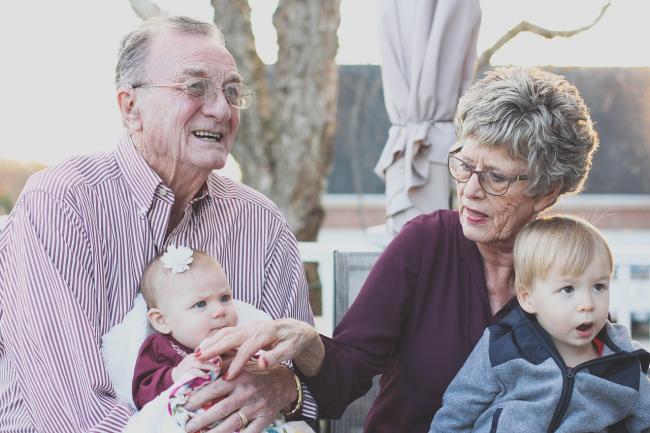
UK mums getting back to work thanks to grandparents’ childcare: Study
Birmingham, Nov 8 (IBNS): The extent of grandparents providing childcare in the UK is much higher than previously thought and is a factor in helping mums to get back into the workplace.
According to new research carried out at the University of Birmingham, grandparents were the first named source of after-school and weekend care for 36% of school entry year children for lone parents and 32% for partnered mothers. It was found that grandparents are providing care for mothers with all levels of educational attainment.
The study, published in the Journal of Social Policy, suggests that grandparent-provided care is extensive in the UK and has had a major impact on the work force, raising mothers’ returning to work after having children by 26% (12 percentage points of participation).
Mothers from all levels of education are benefiting, according to the research. Grandparent care raised participation of mothers with degree-level qualifications by 20%, which makes a big difference because these mothers are more likely to be able to get work.
It also made a big difference to mothers without qualifications who were less likely to be able to get a job, raising their lower participation by about 40%, while for women with a low level of qualifications (NVQ1) it raised their participation by 25%.
So for women with fewer qualifications, grandparents taking care of the grandchildren can make all the difference in terms of whether mothers work or not.
Researchers examined secondary data of more than 14,000 mums from the Millennium Cohort Study (MCS), a nationally representative study of babies born in the UK over a 12-month period, from the year 2000.
Their study also found that in the UK many grandparents live close to their grandchildren, with around 40% of mothers located within 15 minutes of their parents.
However, with recent changes to the age of the state pension, the research points to grandparents facing an increased conflict between providing care for their grandchildren and working.
Dr Shireen Kanji, University of Birmingham said: “The contribution of unpaid work, often performed by women, is often unrecognised. Grandparents are having a large causal effect on mothers’ participation in paid work in the UK, but grandparents themselves are under pressure to extend their paid working lives as a result of recent changes to the state pension age.”
With a competitive job market and expensive childcare options in the UK, researchers found that there was a strong degree of extended family support to assist mothers back into the workplace.
Dr Kanji added: “The evidence is clear that working parents in the UK rely heavily on grandparents and the degree of intergenerational solidarity is surprisingly high in what many regard as a liberal market economy.”
However, the study did point to further research being required to find out more about motivations for using grandparent childcare.
Support Our Journalism
We cannot do without you.. your contribution supports unbiased journalism
IBNS is not driven by any ism- not wokeism, not racism, not skewed secularism, not hyper right-wing or left liberal ideals, nor by any hardline religious beliefs or hyper nationalism. We want to serve you good old objective news, as they are. We do not judge or preach. We let people decide for themselves. We only try to present factual and well-sourced news.







